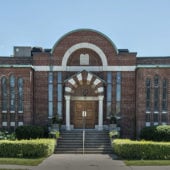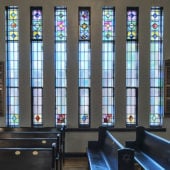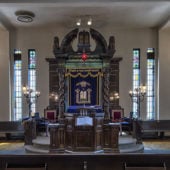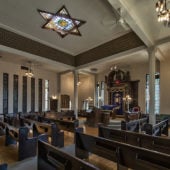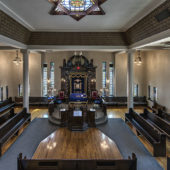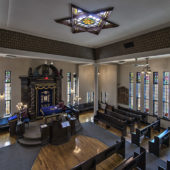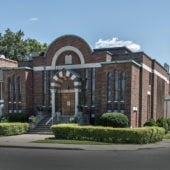A diverse community located in the Niagara region which respects the wisdom of its elders and embraces the family and children, with programs for youth, young adults, families.
Initially an Orthodox synagogue, Congregation B’nai Israel, has been a member of the United Synagogue of Conservative Judaism for the past 30 years. The style of worship is Egalitarian whereby women play an equal role to male members. The congregation follows many traditional practices and observes all Jewish Holidays. It celebrates many historical events such as Hanukah and Purim and provides weekly Monday and Thursday mornings, Friday evenings and Shabbat services year-round. The St. Catherines Jewish community consists of about 150 family members, with many programs for young and old.
The following historical information is quoted directly from www.jewishstcatherines.com :
The first official indication of the presence of Jews in St. Catharines is recorded in 1855. It was a German tailor Hofeller, about 35 years old, his wife and three year old daughter. Also possibly, three brothers, as well as a merchant named Westheimer. Phillip Ginsberg, arriving in 1888 was one of the founding fathers of the official Congregation, along with R.I. Friedman and Aaron Needle. The first services were held in the home of Mr. Ginsberg on Church Street, later in facilities rented on Niagara Street. In 1881 the Jewish population was 24 souls.
In 1902, a teacher and Baal Tefilla were engaged, and about that time a house rented at Church and Calvin Street was purchased to be the first permanent synagogue and Talmud Torah for $3,500.00. For some years, the Baal Tefilla, shochet and teacher lived in the house, which was moved from Church Street to the present location when the congregation grew. In 1923, ground was broken for the synagogue, patterned after the design of Temple B’nai Jeshurun in Bonn, Germany. The building was completed in 1925, at a cost of $ 26,500.00 and has room to seat 450. Because of shortage of funds, the bima and benches were installed at a later time. The service was conducted according to the orthodox minhag; the bima was located in the middle of the shul. In 1950 a start was made on the adjoining Newman Memorial Building, with the installation of a fire escape as well as an enlargement of the kitchens and in 2003 by an elevator to accommodate wheelchairs.

